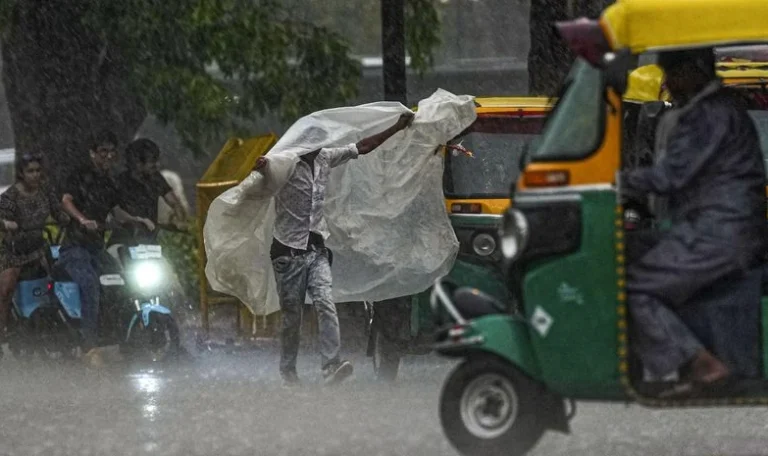
It is a raw thought that whenever man must have learned civility, culture, and subtlety, at the same time, rudeness, incivility, and vulgarity must have also emerged in him. When any society, group, or era is called civilized, cultured, and refined, it means that the majority upheld those values — for all people are never good. Similarly, when any society, era, or group is termed rude, abusive, and immoral, not all of its people are like that, but the majority reflect such behaviors. Even in such groups, there are some civil, cultured, and well-mannered people, but they are suppressed. Their voices do not echo within the collective current.
The story of history is very ancient. In every era, noble and vile, refined and rude, sweet-spoken and bitter-tongued, those whose tone dropped flowers and those whose speech flung abuses — all have coexisted. But there is no harm in saying that the changing political situation of Contradictionistan (Tazadistan) has corrupted the tongues of the majority. Those who once were tender-lipped, or whose teeth trembled while speaking, are now seen shouting, screaming, and speaking loudly. If seen historically, it seems that social conditions have disturbed their balance, and it is because of this imbalance that they stagger. The body is indeed staggering, and there is twist and tangle in their speech too.
Flip through the pages of history, and as per Deputy Nazir Ahmad, when Delhi was looted during the Mutiny (Ghadar), the ruffians of Delhi not only humiliated every noble and respectable person but also looted them and raised slogans of religion with joy. In the poetic and noble culture of Lucknow, the mention of the hired slatterns of the Pir Bukhari neighborhood is found — when the nobles of Lucknow clashed amongst themselves, they couldn’t even imagine the disgraceful act of cursing and taunting. That’s why there were slatterns available for hire in the area of Pir Bukhari in Lucknow, who would side with the quarrelling nobles and rain curses and taunts upon their opponents. These women were so skilled in their art that nobles would hire them at high rates — the higher the fee, the sharper the abuse and the more piercing the taunts.
If we observe today’s surroundings, it feels like rudeness and incivility reign everywhere. The limit is that even those who do not indulge in such behavior themselves, enjoy watching others being rude. And what is “viral” after all? Isn’t it that people take pleasure in watching someone else’s rudeness and humiliation? Once upon a time, Catharsis meant embracing the story of a tragic drama, mourning it as one’s own sorrow, and finding peace through that grief. Today’s Catharsis means watching others being disgraced and soothing one’s own dark urges. In other words, Catharsis is no longer about feeling sorrow and shedding tears to find peace, but about mocking others and gratifying one’s base instincts.
If we examine the relationship between history and culture, it can be confidently said that incivility and rudeness thrive in times of tribulation. Though these qualities exist in every society, hidden in some corner, it is in turbulent times that they flourish. In fact, chaos and incivility are linked. Ruffians and slatterns thrive on conflict, quarrels, enmity, and heated environments. As soon as reconciliation, peace, and calm settle over society, ruffians and slatterns disappear, hiding away into corners.
Who are today’s ruffians and slatterns? The ones who flare up at the mention of reconciliation. The ones who spread chaos in society. Those whose faces are constantly tense, whose eyes are bloodshot, and whose tongues spit curses. Those whose hands can’t keep anyone’s dignity safe. Those who disgrace everyone, thinking that if they themselves are dishonored and disrespected, others should be too. Every man or woman who spreads evil by believing in accusations, slander, and foul speech is a ruffian or a slattern. Suspicion of everyone, doubt on all, cursing each person, mocking everyone — these are the habits of ruffians and slatterns. And anyone who collaborates with them or claps along with them is also a ruffian or slattern.
In Deputy Nazir Ahmad’s Delhi, ruffians existed, and in the era of Nawabs of Lucknow, slatterns from the Mohalla Pir Bukhari were available for hire — but now they are nowhere to be found in those places. In truth, wherever there is chaos in the world, wherever there is political struggle, fighting, and turmoil — where civility is replaced with rudeness, and dialogue is replaced with delirium — there the ruffians and slatterns arrive. Unfortunately, or due to some ill-fated twist of history, ruffians and slatterns have now made homes in Contradictionistan. Some even sit far from home but still find no peace, continuously hurling bombs of sarcasm and evil upon their own country, their own profession, and their own peers — and find pathological satisfaction in it.
Search the pages of history or dictionaries — ruffians and slatterns are those devoid of intellect, overwhelmed by emotions, who don’t believe in the sweetness of the tongue, who wield their words like daggers and murder people with them. They are those who spread hatred in societies and become enemies of love. They are the group whose fate is failure. Indeed, in times of crisis, ruffians and slatterns receive immense encouragement — sometimes chants are raised in their favor, sometimes they receive “Likes”, sometimes their sarcasm and mockery go viral, and sometimes their “hits” touch the sky. But they forget this lesson of history — that when light arrives, darkness flees; when peace comes, unrest disappears; when civility rises, rudeness hides away; and when culture grows, incivility withers.
If society is to attain culture — and surely it must — if it is to move forward, then the ruffians and slatterns must fall into the abyss!
 Colors
Colors  View Books
View Books 


